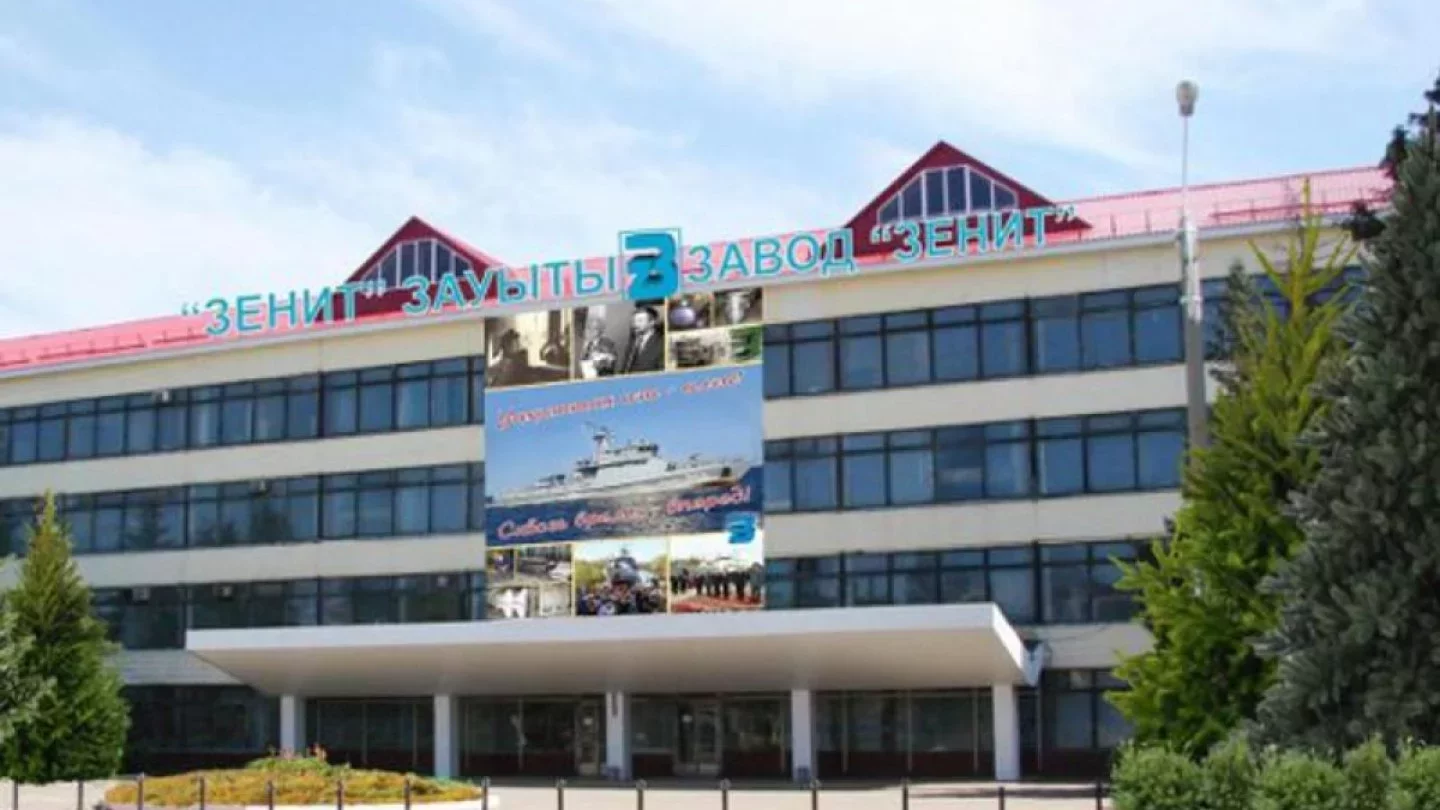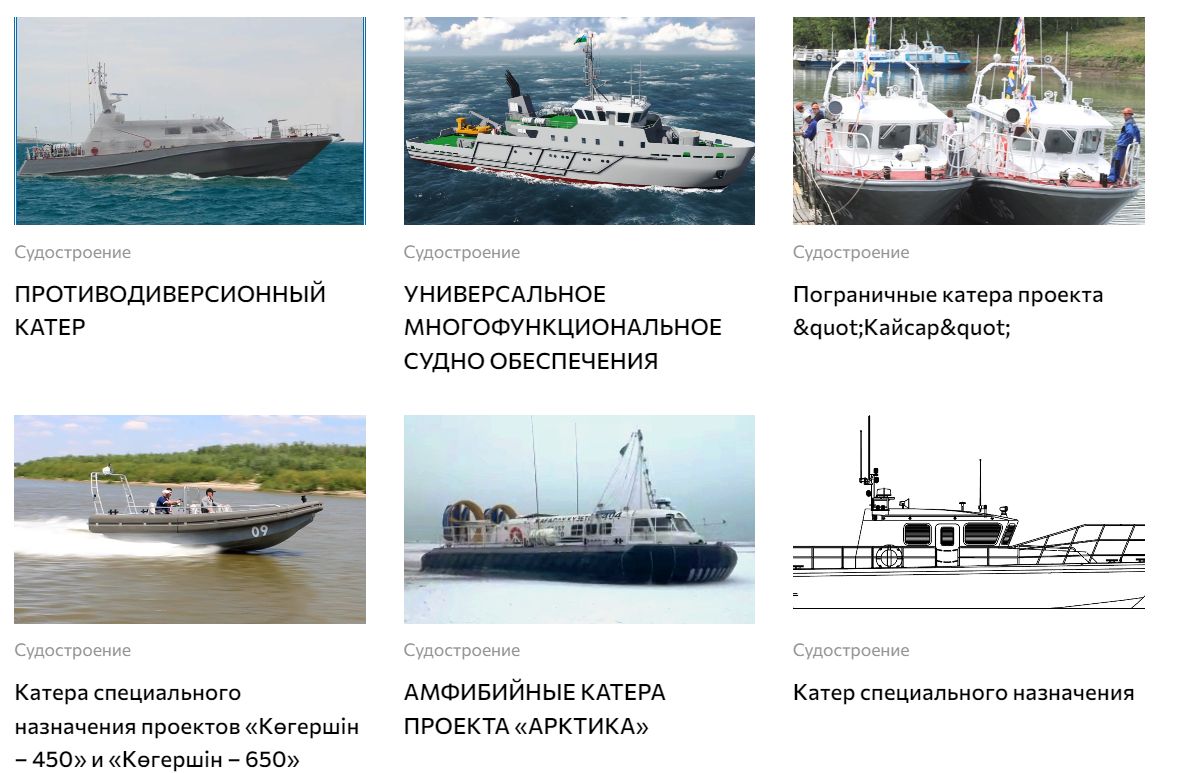Turkish Сompany YDA Group Wants to Buy Kazakhstani Plant. Why Are Workers Opposed?
 Photo: zenit.kz
Photo: zenit.kz
The Turkish construction company YDA Group has put an offer on the table for Kazakhstan's government: the sale of 85% of the shares of the Ural Zenit plant. While the Ministry of Industry and Construction speaks of advantages in having a foreign owner, the plant's employees are expressing concern. Orda.kz has looked into the situation.
The plant was set up in 1921 in Leningrad under the code name "Zavod-231" or "Yashik-38". The company was moved to Oral after the outbreak of World War II. This is the only enterprise in Kazakhstan awarded the Order of the Patriotic War of the first degree. From 1966-1991, it officially bore the name "Voroshilov Machine-Building Plant". In 1996, it became a joint-stock company.
JSC Ural Plant Zenit produces shipbuilding products: speedboats, BARS - MO rocket and artillery ships and Aybar patrol boats.

The owner of 100% of the shares of the Ural Zenit plant is JSC NC Kazakhstan Engineering (Kazakhstan Engineering), a state owned defense industry complex. The total area of the plant is about 21 hectares. About a thousand people work at Zenit. This year, the plant has contributed more than a billion tenge to the state treasury.

Turkish Defense Industry Shows Interest
In June, news emerged that the Zenit plant signed an agreement with the Turkish defense company ASFAT and the YDA Group enterprise. It concerned the construction of warships for Kazakhstan’s navy.
The agreement includes the design and construction of marine vehicles, commercial vessels and main warships for the Kazakh navy, the media wrote.
More details emerged a month later. Representatives of the company affiliated with the Turkish Ministry of Defense met with employees of the plant and the then Minister of Industry and Infrastructure Development, Marat Karabayev (now Minister of Transport — ed.).
The official spoke about the intention to transfer Zenit to YDA Group in exchange for investments in the construction of a shipyard in the Caspian Sea. On October 13, information surfaced that the state would have a minority stake: 15% of the shares.
Employees Opposed
Zenit employees were against the proposal to transfer 85% of the plant's shares to the Turkish manufacturer. They wrote an open letter addressed to Qasym-Jomart Toqayev. 29 people did so, including the former general director of the enterprise, Vyacheslav Valiev, deputy directors and department heads.

According to the employees, despite the need to build a shipyard for large-capacity vessels, the sale of a majority stake in the plant contradicts the interests of the company, its employees, and the state.
The construction of the shipyard is a process independent of the Zenit plant's activities. Interaction in the future between the plant and the shipyard may be based on contractual relations in the civil legal plane, the employees of the Ural plant noted.
They are concerned that given the transfer of ownership to a foreign entity, they will not be able to fulfill a mobilization order if a state of emergency is introduced. Zenit will cease to be a national manufacturer.
Any incoming investor is interested in profit, and the state defense order does not create much profit. In order not to work at a loss, the new owner will begin to "optimize" production, reducing and gradually eliminating the military specialization of the enterprise. As a result, the state will lose another defense enterprise, the workers wrote.

The signatories have said that the establishment of a joint venture is an acceptable option for cooperation with the Turkish companies. In 30 years, 34 boats and ships have been put into operation at the plant. The company provides technical maintenance so that ships consistently combat ready.
What’s In it For Us?
The purchase of 85% of the shares is being discussed by Turkish enterprises together with the Ministry of Industry and Construction. The department believes that 15% will be enough for the state to prevent the new owner from liquidating or re-profiling the company. The solution for the issues affecting national interest remains the Government’s responsibility.

The Ministry of Industry told JSC Ural Plant Zenit's staff about the prospects of the enterprise if the majority part belongs to Turkish Askeri Fabrika ve Tersane Isletme A. S. (ASFAT) and YDA INSAAT SANAYI VE TICARET ANONIM SIRKETI (YDA).
The cooperation of the plant with the shipyard will allow the construction of small-sized vessels, the production of parts and sections for the assembly of large-tonnage vessels on staples (construction for the construction or repair of a merchant vessel or a warship and its launching — Ed.) of the shipyard. It will ensure the transfer of technologies and equipment, the development of design and technological documentation. Organizes the production of surface vessels of various modifications, the supply of necessary goods for completing shipbuilding products, training of engineering and technical workers and shipbuilders, improving ship maintenance, developing promising areas of design and construction of unmanned surface vessels and platforms for, military purposes, the ministry said.
Upon selling the majority part of the plant's shares, the government plans to set two conditions for the new owner: maintaining the activity profile and the number of employees.
Taking into account the concern of the company's staff about the proposed privatization, as well as the loss of the national manufacturer of marine vessels by the state, the leadership of the ministry held a working meeting with the staff. It discussed the issues of attracting investors and the prospects for the development of Zenit. The team was asked to create a list of conditions for the investor
Corruption Risks
Zenit’s former general director, Vyacheslav Valiev, told an Orda correspondent that there is some haste in making the sale. Not only from the Turkish side, but also from the Kazakh one. After signing the agreement of intent, almost the next day, a letter was sent to Prime Minister Alikhan Smailov asking to sell the Ural plant to YDA Group. And in JSC NC "Kazakhstan Engineering", the plant's management was more or less demanded to "speed up the lifting of restrictions for accessing the site."
The direct targeted sale of a controlling stake and lobbying of interests of specific Turkish companies by Kazakh officials carries high corruption risks. It is necessary to conduct an anti-corruption examination of both the protocol of intent signed between the plant and Kazakhstan Engineering, on the one hand, and the Turkish companies ASFAT and YDA Group, on the other, and other decisions taken regarding this matter. And the election of a potential investor for the construction of the shipyard should be carried out on the basis of international competitive procedures, Valiev said.
Valiev, when he was deputy chairman of the association of enterprises of the military-industrial complex, asked himself: why does the construction company YDA Group need the warship producing Ural plant? According to him, the position of the Ministry of Industry is "anti-state and aimed at destroying domestic industry, which ultimately undermines and weakens the country."
If the involvement of the company in the construction of a shipyard in the Caspian Sea is logical and understandable, then the sale of 85% of the shares of the plant causes bewilderment and reasonable concern over losing another enterprise of the defense industry. And a shopping and entertainment center or luxury real estate can be built on a plot of land in Oral’s center. It is strange why officials do not think about this when they call for defending the interests of their own country, he explained.
Vyacheslav Valiev noted that 15% of the shares will not facilitate the state's ability to keep controlling rights, dubbing it a fantasy. He also explained that "the benefits described by the Ministry of Industry and Construction" are present without foreign participation.
Editorial board of the Orda.kz will continue to monitor developments.
Original Author: Maria Gorbokonenko
DISCLAIMER: This is a translated piece. The text has been edited, the content is the same. Please refer to the original article in Russian for accuracy.
Latest news
- Kazakh-Russian Border Sees Truck Congestion Amid Summer Traffic Surge
- Kyrgyzstan: Authorities Uncover Official Forgery at I. Arabaev University, Expel Dozens of Foreign Students
- Kazakhstan's Special Forces Join Multinational Anadolu-2025 Drills in Türkiye
- Relative of Former Akim Danial Akhmetov Temporarily Appointed to Head Kazakh Railways
- Audit Chamber Stands by Findings Amid Dispute with Health Ministry
- Authorities Detain Seven in Sputnik Azerbaijan Investigation
- Foreigners in Russia Facing SIM Card Blocking Over Biometrics Rules
- Petropavlovsk Blogger Sentenced to 3.5 Years for Ethnic Discord
- Toqayev Discusses Challenges and Priorities with SCO Secretary-General
- Kazakh Ambassador Confirms Attendance at Kadyrov Son’s Wedding
- Bektenov Criticizes Ministry of Water Resources Over Project Delays
- China Eastern Airlines Launches Direct Flight from Shanghai to Almaty
- Black Market for Water: Why Fields Lack Water in Kazakhstan — and Who’s to Blame
- Former Vice Minister of Labor Akmadi Sarbasov Detained
- Quest Pistols Concert in Astana Reportedly Cancelled
- Former Director and Accountant of Elite Astana School Accused of Embezzling Over 900 Million Tenge
- Explosion Hit Vilamoura Tanker: Energy Ministry Says Kazakh Oil Wasn’t On Board
- “Someone Who Was Rejected by Everyone — Except You”: The Lukas Shelter Rescues Forgotten Animals
- Wife of Convicted Police Chief Under Investigation
- Kazakhstan: Ten Regions Achieve Full Water Supply Coverage, Says Minister

